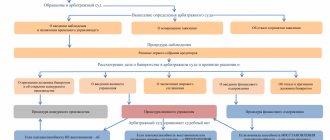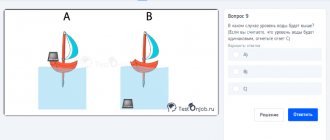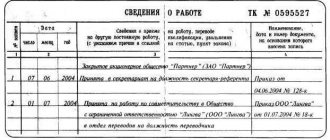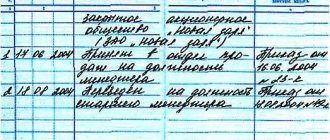In this article, we have collected recommendations on how to conduct an interview: tips for managers, the most effective techniques and expert opinions.
Many employers do not know how to properly interview a candidate for a position. Such a conversation should take place on equal terms - no arrogance or patronizing phrases. What should an employer look like in the eyes of a potential employee? Undoubtedly, an interesting, very open and attentive listener. A conversation taking place in this vein will help not only to see the pros and cons of the candidate, but also to study him very thoroughly.
Content
- A short introduction
- Interview - what psychologists think about it
- Interview formats
- Methods of conducting
- First impression and appearance
- 4 tips to help you start your interview right
- Questions to Ask
- Recommendations from experienced entrepreneurs
- How to formulate questions correctly
- Questions for backfilling
- Question form: what question to ask in a specific situation
- Conclusion
At the very beginning, we will go through the theory, and then we will move on to practice. Enjoy the content.
A short introduction
Employers are often at a loss, not knowing what questions to ask. Here it is important to start not only from the professional component, but also from other aspects of life. It is important to learn about something completely abstract. This approach will help to win over the candidate and inspire confidence in him. The beginning should be informal in order to defuse the situation and prepare the applicant for the main part of the conversation, during which work issues will be discussed.
It is very important for an employer, before conducting an interview, to think about how he would like to see his employee, what traits will be important to him and which are unacceptable. In this case, you first need to think about the following two questions:
- What type of employee should be suitable for a specific vacancy?
- What qualities should he have?
Having an approximate portrait makes it much easier to find the right person. Knowing the approximate result, a solution is always found faster.
Interview - what psychologists think about it
Regardless of the duration of the conversation between the employer and the candidate, an opinion about the candidate is formed already in the first 3-4 minutes of communication. During this time, the manager makes positive or negative conclusions about the applicant.
Psychologists believe that the first few minutes should be devoted not to receiving information, but to creating a cozy and calm atmosphere, both for the employer and for the job seeker. This will help the candidate to relax. Constructive relationships and understanding will appear between the parties. It is this atmosphere that will allow you to work as productively as possible in the future.
The first few minutes can be devoted to the introduction. It should be short, informative and understandable. The employer must communicate the interview objectives to the candidate. It is also necessary to inform about the form in which the communication will take place and what its duration will be. Coordination of actions will allow you to establish psychological contact between the parties.
Interview formats
Before planning the structure of the interview, the employer must decide on its form. They can be divided into the following categories:
- Structured
This type of interview requires a clear and structured template. Before starting, the employer draws up questions, paying special attention to their wording. This variety is the most popular among respondents.
- Stressful
At such an interview, the employer deliberately tries to unbalance the applicant. This effect is achieved through personal questions, lack of time to think and other tricks.
- Situational
In this format, the applicant is placed in conditions reminiscent of work. This way he has the opportunity to demonstrate his professional and personal qualities and find a solution for a specific situation.
- Competency interviews
If used correctly, this format can be very effective. A list of competencies that the employee must fully possess is drawn up in advance. During the interview, each of them is assessed on a 5-point scale.
- Interviews via Skype
This option is most often used when searching for an employee to work remotely. Sometimes it is also used to make a first visual impression and establish contact. But in such cases, the interview presupposes a subsequent meeting in life.
Types of job interviews according to assessment method
In a traditional face-to-face interview with a potential manager or person responsible for recruiting, the main assessment is the impression that the employer's representative has of the applicant. But there are other ways that complement the personal attitude:
- According to competencies. Competency scales are being developed. The applicant is asked questions or asked to perform some task, during which his education, experience, personal characteristics, stress resistance and other qualities can be assessed. Each scale is given a rating. Then the scores of different candidates are compared and the most suitable one is found.
- Technical. Only questions directly related to work activity are asked. Assess a set of skills. If the applicant can do what is required, has the necessary skills and knowledge, he is suitable for this position. This is a type of interview for positions for which real experience and skills are important.
Methods of conducting
In addition to formats, there are also certain interview methods. Here are the methods used today:
- Retrospective method
It is based on obtaining information about the applicant's past work experience. The manager learns about the results obtained and the lessons learned. Relationships with superiors at your previous place of work also play an important role. This information allows us to predict how the applicant will behave in a new place.
- Perspective method (also called modeling)
The employer offers the applicant certain conditions or a situation, who in turn must comment on what he would do and how he would act.
- Situational method (game)
The point is to bring the proposed model closer to a realistic scenario. Sometimes it is possible to simulate situations where the employer is the recipient of the service, for example, and the applicant must serve the client.
- Stress method
It makes sense to use this technique only when subsequent work will involve the occurrence of stressful situations. It is very important to use it very carefully so as not to harm the image of your organization.
After the manager chooses a certain technique and type of subsequent interview, he should understand how to begin communication.
First impression and appearance
It’s not for nothing that they say that the first impression is the most correct. It is formed before meeting the applicant, while studying his resume, communicating by phone or e-mail. This can be called a kind of selection, based on the results of which a decision is made whether to invite the candidate for a further interview or not.
Some people think that appearance is not that important when choosing. People say that you meet someone by their clothes, but they send you away by their intelligence. However, don't discount a person's appearance. Neatness, clothing - all this is a reflection of a person’s internal attitudes and values.
4 tips to help you start your interview right
Many people mistakenly believe that starting an interview is very simple; they have probably never encountered this. The applicant forms his opinion about the organization within the first 3-5 minutes. It is very important at this moment not to disappoint the candidate. The following four tips will help you get started successfully:
- It is necessary to prepare a meeting room or your own office for an interview . There must be order there. The room should not be stuffy. Before starting negotiations, ventilation would be an ideal option. It is important to obtain a written copy of your resume and place it in front of you.
- Defuse the situation . This will help the candidate feel comfortable, and he will be able to begin to trust the potential employer. This can be done by asking abstract questions. For example, whether the applicant quickly found the right building or whether there were any difficulties in finding the right transport. Another option is to tell some interesting story that will relieve tension.
- No delays or tardiness . The manager must accept applicants exactly on time. It is important to understand that it is the director who is the role model for his subordinates. If the leader does not have discipline, then how can we talk about discipline in the team?
- Self-presentation of the applicant . It is very important here to start talking openly with the candidate. This will also help evaluate his communication skills. At the very beginning of the interview, you can ask the applicant to tell a little about himself, clarifying some questions or letting him choose what to talk about.
If free communication between the parties is established, then you can start asking questions.
Key rules
An interview with a potential employee is a complex and responsible undertaking. It requires a lot of effort from the employer. In particular, you need to follow the following basic rules for conducting an interview:
- Prepare your documents. You should have at hand a list of candidates and a resume of each of them, an approximate list of questions, and job descriptions. Each applicant should be given a separate answer form, and there should also be several blank sheets for notes.
- Make sure you have a comfortable environment. The room must be clean and well ventilated. There should be no foreign objects in the workplace.
- Be careful in the first minutes. As a rule, the first impression of the interlocutor is formed three to four minutes after the start of the conversation.
- Take breaks. There should be at least half an hour between interviews with different applicants for a position. Otherwise, you may transfer the residual impression of the previous one to the new interlocutor, which may cause an erroneous decision.
- Remember discipline. You are required to arrive for the interview on time or notify the applicant in advance about the postponement of the meeting.
- Record the progress of the interview. It seems to you that you remember everything, but within a few minutes after the end of the conversation you may forget important points. And written notes will help you quickly recall information about the applicant.
Questions to Ask
When deciding on a list of questions, you need to think not only about their content, but also about their sequence. The conversation should be logically structured. Here is a procedure that will allow you to conduct the interview as correctly as possible:
- Tell me something about yourself
The leader should note several nuances in this story:
- How the applicant presents information - talks about his biography or immediately starts talking about his advantages. The latter indicates a desire to work in this company.
- It is a good sign if the interlocutor speaks clearly, clearly and concisely. But an employee should not mumble. His thoughts should be clear.
- What are your views on life?
You can also ask the applicant about how he deals with difficulties and obstacles. A question like this will help determine a person’s character, his nature. Pessimists will focus on the large number of problems and complexity of their lives. Optimists will agree that difficulties exist, but all of them can be overcome.
- Why are you interested in this position?
Most answer in a rather formulaic manner, noting good working conditions and the availability of prospects. If a person is a truly valuable specialist, then he will probably focus on some important details.
- What advantages (advantages) do you have?
You can immediately ask why the person decided that he was suitable for the position. This question is one of the key ones. At this point, the applicant will be able to talk about his advantages. It is very important to monitor how a person presents information. Some people speak abstractly, others very reasoned. More attention should be paid to those candidates who prove their words with facts and figures. Their benefits are more real and significant.
- What shortcomings (weaknesses) do you have?
A competent employee will not start talking about “real” weaknesses, but will focus on those points that will only increase the chances of getting a particular position. This includes increased demands on yourself and others. Some would call themselves a workaholic.
- Why did you leave your previous job? What was the management's opinion of you?
These questions are relevant for those who no longer have a job at the time of the interview. If the candidate has not yet been fired, then it is worth asking why he decided to change jobs. It is very important to see how a person responds to his previous place of work. If he does this with negativity, showing his conflicting side, then this will certainly affect his future relationships with the team. Such employees need to be hired very carefully, after weighing all the pros and cons.
If the specialist is competent, patient and competent, then he will rather point out the positive aspects associated with his previous work. At the same time, he will say that he is now striving for more, wants to grow in his career.
- Do you have any other job offers?
The qualified specialist was clearly invited for interviews somewhere else. An undoubted advantage will be his emphasis on the fact that he is interested in obtaining a position in this particular company.
- Where do you see yourself in 5–10 years?
Many people don't think about their lives in the long term. The company hardly needs such specialists if the manager wants to find an employee for a responsible position for a long time. Someone will answer in a very abstract way, which is also not very good. It is important to get a specific answer. There are not so many candidates with clear plans for life. They talk about desired personal successes and professional growth.
- How would you improve your work in our company?
The best option would be if the applicant can offer specific ways to improve work. Having your own experience will also be a plus. It is unlikely that this will be possible to do at the first interview, because the candidate needs to look at the company’s work from the inside, evaluate its advantages and disadvantages, and only then offer his own solutions.
- Where can you get feedback on how you performed at your previous job?
This question is very important and will be very useful to the employer. The best option would be to provide the employer's phone number or even several employee contacts that could characterize the candidate. Often, applicants do not provide such information. The reason may be a lack of work experience or positive recommendations.
- What salary would you like to receive?
A qualified employee always values his work. The company cannot always offer a salary that would suit the applicant. But sometimes candidates are simply bluffing when they claim high fees. It is quite simple to calculate such actions - you need to significantly reduce the amount offered or offer some benefits. This will certainly throw a person off balance.
- What do you do in your free time from work? What are your hobbies?
You should ask about this at the end of the interview. Perhaps the employer will find a like-minded person, a colleague in hobbies. This will also have a positive impact on the applicant’s opinion of the director, which will help build the right relationships in the course of further work.
Concept
A job interview takes place as an interview.
An interview is a method of collecting information about a candidate through conversation in order to obtain the necessary data to identify professional skills.
Target
The purpose of an interview with a candidate for a vacant position is aimed at obtaining complete information about a possible employee in order to identify his professional suitability in the organization. And also to select the best candidate from a possible number of applicants.
Advantages and disadvantages
Let's look at the advantages and disadvantages of interviewing a candidate. The positive side of the interview procedure is that you get a complete picture of the candidate. Using a variety of techniques, during a job interview you should evaluate and identify his personal and professional qualities. Determine his reaction in unusual situations using tricky questions. Reveal his communication skills.
Disadvantages on the part of the employer: subjective assessment of the candidate during the interview for some personal reasons. Comparison of the applicant with a certain standard employee.
The candidate, in turn, may answer interview questions unreliably , trying to extol his qualities and skills.
Recommendations from experienced entrepreneurs
Of course, the “life” advice of people who have conducted hundreds of interviews during their careers enjoy great authority. The following are the most interesting points of view.
Sergey Abdulmanov, Dmitry Kibkalo and Dmitry Borisov
Founders and directors, authors of the book “Business as a Game.” They have opened many retail outlets and know how to conduct an interview like no one else. They talked about this in their book and we will write their recommendations below.
They looked at "Rejection in the second minute of the interview." This approach is very useful!
It happens like this: an applicant comes in and after a few questions you realize that he is not suitable at all. In this situation, there is no need to torment yourself or him with further questions. It is enough to explain that he is not suitable and end the interview. You still have to work with this person, and if you didn’t like him in the first minute, what to talk about further.
After all, it often happens that a person simply does not suit you in spirit. And most importantly, do not take such people into the core of the team. Therefore, if a tough professional comes to fill the same vacancy, with whom it feels difficult to work, and a person with less knowledge, but burning with positivity, the choice is clear!
Boris Petrov
General Director, St. Petersburg. Interview in 15 minutes? Easily!
Boris claims that his interviews usually last no more than 15 minutes. He shared the most important details that will help negotiate with the candidate as efficiently as possible:
Language of the body . Undoubtedly, you need to observe how a person behaves during an interview. The body will always reveal whether the interlocutor is sincere or disingenuous. Thus, insincerity usually means scratching behind the ears, a distant gaze not directed at the interlocutor, hiding his palms (he puts them on the table or lowers them between his knees).
If a person comes to an interview and never looks the interviewer in the eyes, this is a bad sign. It is unlikely that he was frank during the conversation. At the same time, there is little point in spending time finding out the reasons for this behavior.
What were you paid for? What is the product of your labor? Any person, regardless of what field he works in, creates some kind of product for which he receives money. Some are responsible for drawing up documentation, others work directly in production. At the same time, a person must understand that paper itself is not a product until it has brought some benefit. Otherwise, it will simply be useless.
If a potential employee responds that he receives money for performing job duties or for “sitting” the required time, he is unlikely to become a key and active employee. Such personalities, as a rule, cannot interest the interviewer. Some, on the contrary, speak very clearly about what they did, what they created. The detailed answer indicates two key factors at once. The first is that a person knows what he is doing and what he can do. The second is that it is aimed specifically at work, and not at “walking around” in order to receive a salary.
Evgeniy Demin
General Director and one of the owners of the Splat company, Moscow. What to pay attention to, what questions you can ask additionally.
Evgeniy notes that the duration of the interview depends on the position. It can last 10 minutes or an hour.
Thinking . To understand how a person thinks, you should ask him a question that can be answered in different ways. As an option, ask who is his authority or what he can teach the company’s employees. Such questions allow a person to answer in a free form. At the same time, he involuntarily demonstrates his character traits.
Principles and priorities . These components are important factors. It is necessary to compare the principles of the person with the principles of the company. It is important that they do not contradict each other. You can learn to feel your interlocutor over time. The more such negotiations, the faster you can understand whether a person is suitable for the position or not. Negative factors are closedness, detached gaze, unclear answers, changeability in one’s opinions. Perhaps the applicant uses techniques and approaches in his work that seem unacceptable or inappropriate to the interviewer. For example, when hiring a person from a competing company, a negative factor will be his willingness to share commercial information.
Trainability, the ability to learn from one's mistakes . A person often exaggerates his successes and tries to minimize his failures. Everyone makes mistakes, but it is important to understand whether the applicant is able to learn some lessons from them and adjust his activities. Much depends on the specific situation and the scale of the consequences that occurred as a result of incorrect work.
Unusual questions to ask a candidate during negotiations:
- What kind of superhero would you like to become if you had the opportunity? The answer will help identify those qualities that a person considers most important and valuable.
- Ask the candidate to describe their ideal job. This applies to place, time, scope of activity and specifically functionality. This way you can learn about hobbies, interests, life principles. This will allow you to understand how honest a person is and whether he wants to work.
- The question of shortcomings can be replaced with a kind of game. To do this, you need to draw a square on a piece of paper and ask the candidate to shade it in accordance with how professional he is. A completely shaded figure means that knowledge and skills are at the highest level. Typically, people leave part of the square unshaded. In this case, you can ask why it is not completely painted over, what the person specifically lacks.
- What shortcomings of yours would immediately catch the eye of a new manager? This question will also help to find out the weaknesses of the interviewee. In this case, the candidate will have to look at himself from the outside.
- For what reason do you want to change jobs now? Maybe this is how a person wants to change something radically in his life, maybe the work environment or relationships with the team. At the same time, the employer will also be able to learn about the priorities and motivation of the applicant.
- If I contact your previous employer, what will he say about you? This question will also help the candidate look at himself from the outside and understand why he wants to change jobs.
- How will you join the new team? The new employee is not aware of how the work process takes place in the company, so he needs increased attention. A person will have to contact many colleagues in order to understand the principle of work, get help, explanation or advice. The answer to the question will help to understand whether the applicant himself is aware of this, whether he understands what will be required of him in the first months of work.
- Explain to an 8-year-old child a concept from your field of activity (you need to name a specific one). Any professional term will do here. The clarity and speed of explanation will show whether a person is able to explain the whole essence of his work to a child who is completely uninitiated in this field of activity. This will once again demonstrate the candidate’s professionalism.
Vladimir Saburov
General Director, Bryansk. Don't give time to think.
It is important to ask about the presence of a family (children, spouse, parents), and clarify their age . Many people will feel that this question will not help clarify anything. In fact, these answers will help to understand whether the applicant has an incentive for intensive and fruitful work, whether he can work focused and intense, approaching his responsibilities with a high degree of responsibility and genuine interest.
Ask to rank priorities . In this case, you can indicate the following factors that may influence the choice of place of work: salary (size, availability of benefits), opportunity for career growth, independence, location close to home, opportunity to improve your professional skills, good atmosphere in the team, complexity of work.
Situational question . Here it is worth asking what the applicant will do if he is assigned a job that is not part of his job responsibilities. Refusal indicates a lack of desire to develop. Such a person will constantly have reasons and circumstances not to do what he should not do. Such employees can only be hired in the accounting department.
Getting to know the place of work . It is important here to show what the applicant will be dealing with. Sometimes expectations often do not match reality. In such situations, applicants themselves may often refuse to work.
Life interests . Vladimir shared a case from his practice. One day, a young applicant with an economic education came to his company for the position of head of purchasing and logistics. The decisive factor in choosing this candidate was that he plays sports and trains children. Vladimir realized that such interests probably mean that the applicant has strength of character, endurance and a clear understanding of the value of time. All this was exactly necessary to work in the proposed position. The manager was not embarrassed by his small age; he invited the young man to work with him. Within a year, this employee was able to positively influence the work of the service on a global scale. He established a supplier monitoring system and honed the interaction between different services of the organization. Such activities made it possible to significantly reduce the costs of purchasing components and transporting finished goods.
Honesty check . You can also ask a situational question here. For example, a job seeker is preparing to go on vacation with his family, and then he is unexpectedly called to work to complete an urgent task. What will he do in this case? Even if a person is insincere, it will be immediately noticeable.
Self-esteem . Here you can also resort to modeling the situation. Let the applicant imagine that he has done a lot of work, on which he has spent a lot of time and effort. The results of his work turned out to be unclaimed. How will he react to this? What will he feel? If a person has low self-esteem, he will probably think that no one appreciates him, and that his time and effort were wasted.
A manager who doesn't know how to lead? It makes sense to ask the next question in a situation where you are searching for an employee for a leadership position. You can ask what the candidate will do if his employee does not complete his work on time. If he says that he will carry it out on his own, then this means that the person does not have the makings of a leader, he is only a performer.
Rigidity. This question should also be asked of those who want to get a management position. You should ask what the applicant will do if a subordinate is rude to him. If he resorts to moralizing, it is unlikely that the employee will be able to work as a manager. Work requires strict discipline; subordinates must complete assignments on time and in accordance with requirements. A positive response would be the application of penalties, dismissal if the incident repeats. A particularly tough position is needed by those who work in production.
Do you have any interest in the work? It is very important to understand whether the applicant is interested in the activity or just wants to receive a decent salary. Any manager wants to see in his employees an interest in the process and the resulting result. This is the only way to build a strong system.
Life principles - what suits the company ? It is necessary that the company's principles coincide with those of the applicant. Vladimir again shared a situation from his life. Once he did not ask a candidate during an interview for the position of production director what “production culture” meant to him. It was important for the manager that everything in the workshop area was always in order and clean. It is this factor that directly affects the size of wages. This culture is also associated with honesty at work. The hired candidate performed well, was able to join the team, and organize work. But he also had one serious drawback - he tried to hide shortcomings in his work. The employees worked in perpetual chaos. Vladimir tried to fight this for some time until he found out that the director and the house had the same situation. It became clear that there was no point in raising such a person. I had to part with him. The issue of cleanliness is very serious in production, because clutter increases the likelihood of injuries at work and equipment breakdowns. Ultimately, this leads to additional costs. In addition, the workers themselves treat the company very differently when there is chaos around them and they do not support it in any way.
Conducting a company and vacancy presentation
- Nowadays, good candidates are considering offers from several employers simultaneously. Therefore, when presenting your proposal, your main goal is to “sell” your vacancy to the candidate.
- Prepare a company presentation and vacancy in advance. Most candidates are always wary of new information about an employer. A high-quality presentation motivates the candidate.
- Give the candidate as much positive information as possible about the company and the proposed position. Tell us what is your competitive advantage compared to other employers.
- If the candidate is not interested or really doubts the vacancy, do not convince the candidate: unmotivated candidates lead to failures in filling vacancies.
- When presenting your company, tell us about the field of activity and the specifics of the work, market position, period of existence, prospects for the company's development, competitive advantages, and features of the corporate culture.
- When presenting your vacancy, tell us about the job responsibilities and powers, the structural unit, its boss, who will be subordinate, goals for the new employee, career prospects, and the benefits the candidate receives from working in this particular position.
- When presenting the working conditions, tell in detail about the place and schedule of work, the workplace, the salary system for the main and probationary periods, the system of bonuses and bonuses, the social package, vocational training, etc.
- When talking about wages, you need to speak confidently, not be embarrassed or stammer, and say the exact wage or exact wage limits. For most candidates this is a very sensitive moment.
- If the salary system consists of many variable parts and percentages, at the interview it is better to inform the absolute average salary that the candidate will receive if the planned indicators are met, and possible limits.
How to formulate questions correctly
To get a truthful answer, you need to ask open-ended questions. They always begin with question words - when, with what, why, how many and others.
| Closed questions | Open questions |
| So no need to ask | This way, asking them will be as effective as possible. |
| Didn't you like your previous job? | Why did you decide to change your job? |
| Have you done this, this, and this? | How do you see your work in our company, what will it consist of? |
| Are you sociable? Will you be able to join the team? | How would you characterize the team at your previous job? How were your relationships with your boss and colleagues? What traits of a leader turned you off? |
| Can you handle the job? | Why are you suitable for this position? What are your knowledge and advantages? |
Closed questions are those that do not require a detailed answer, just yes or no. They are used exclusively to collect formal information. Do you smoke? Have a family? Do you have your own car? And others.
There is no need to give the applicant hints, offer answer options, or say anything else immediately after the question.
| So no need to ask | It will be right |
| If it's not a secret, tell me, what was your salary at your previous job? | What salary would you like to receive from us? Which one are you counting on? |
| What exactly did you not like about your last job – boss, team, low salary? | Why did you decide to change your job? |
There is no need to set other applicants as an example. Under no circumstances should a leader talk much himself.
Questions for backfilling
The following questions help the manager figure out whether this is his employee or not, and reveal the motivation of the applicant:
- Have you been criticized lately? Do you agree with the critical assessments directed towards you or do you prefer to challenge the statement? Why is this so?
- Where do you see yourself in a couple of years? What do you need to do for this?
- What goals are you guided by when identifying your desire to take up this position? Are your plans for career growth and development of professional skills related to the development of the company?
- What is missing in your work so that it can be called ideal?
- What job responsibilities bring you the most pleasure?
- What three adjectives would you use to describe yourself? What adjectives would your subordinates use?
- What does “achieving results” mean to you?
- Tell us about three situations in which you achieved recognition and success?
- Is it possible to get people to work better? What motivation do you give to your subordinates?
- Are you able to sufficiently praise a person for his achievements?
- What difficulties will you expect at your new job? Which ones would you like to discover? 3 examples for each.
- Tell us about three traits of yours that you would like to change.
- Why did you decide to change jobs? What don’t you like about your current (former) place of work?
- How do you work with “difficult” subordinates? How will you continue to communicate with an applicant whom you will not hire?
- What new things do you want to bring to the company?
Stages
From the moment you submit your resume to the organization until the final decision on employment, there are several interview stages.
Let's look at the stages of a job interview:
- Telephone conversation (personnel interview). When a recruiter contacts a prospective candidate by telephone and, through follow-up questions, verifies the information provided by the candidate in the resume. Next, a date and time for the next interview is set.
- Group training is the second stage of the interview aimed at weeding out unsuitable candidates. Candidates are provided with general information about the organization, including its main goals and development paths. Then, at the 2nd stage of the interview, each candidate must present himself to the others, prove that he is worthy of this job. The second job interview is a qualifying interview based on the results of this stage, the selected candidates are sent to the next interview.
- Conversation with the head of the HR service . At this stage, the interview takes place between the applicant and the manager one on one. This is a method of personnel selection by interview, which takes place in the form of an interview, based on the results of which one or two prospective candidates are selected. An HR employee provides information about working conditions, wages, and career opportunities.
- Interview with the head of the company (final). In most cases, it takes place in the form of a free conversation, where the selected candidate presents himself to the manager. This stage is the main one when applying for a job; as a rule, after a conversation with the manager, the final decision is made.
- Conversation with the immediate supervisor . At this stage, a positive decision has already been made to obtain the position, and the manager introduces the employee to all the intricacies of the company regarding his responsibilities.
Question form: what question to ask in a specific situation
The manager must compose the questions in such a way that the applicant is not engaged in deciphering them, but in answering them. They should be formulated clearly and understandably. The sentence must use simple words. There is no need to ask several questions right away.
- Open-ended questions help reveal a candidate. They are the ones that are used most often.
- Closed questions are applicable in situations where the manager expects to receive a positive answer or wants to receive clarifying information.
- If the manager really liked one of the answers, it’s worth it for a negative balance. So, one might ask, have there been situations in life that didn’t go so well?
- If something suddenly alerts the employer, he can ask a question that will confirm or refute the negative information.
- Clarifying questions are used as additional questions when the manager would like to know a little more about what was said before.
- Questions ending with “isn’t it?” They help direct the conversation in the right direction.
- Mirror questions. The person uttered a statement, the leader repeated it, only in a question form.
- Questions with choice or justification. In this case, the most effective way to obtain reliable information will be to model a certain situation.
- Provocative statements. The manager sets a specific situation and asks for the applicant’s opinion.
- Leading questions that already contain the answer.
- A series of questions helps you immediately learn about all aspects of a particular situation and see it through the eyes of the applicant from different angles. This is a more stressful mode in which you can understand how the candidate perceives a large amount of information.
- Questions related to the previous answer. They provide an opportunity to learn more about the statement or situation that interests the employer.
A lot depends on how a manager prepares for an interview. The more carefully he approaches this issue, the faster he will be able to find a suitable person to work in his organization.
Useful tips
In addition to strict interview rules, it is also worth following a few useful guidelines. Here are some tips from experienced recruiters:
- Don't create barriers. The mistake many employers make is that they communicate with applicants through the desktop. It will be much better if the interlocutors sit in chairs on equal terms. You can also place a chair for the applicant on the side of the recruiter’s workstation.
- Talk less. The employer should listen more during the interview. Control yourself so as not to ask leading questions or give hints.
- Defuse the situation. Do not put pressure on your interlocutor or intimidate him. It's better to start the conversation with a joke. In such an atmosphere, a person will better reveal his personal and professional qualities.
- Don't delay the meeting. If from the first minutes of the interview you realized that the person is not suitable for you, do not waste either your time or his. Apologize and end the conversation.
- Avoid standard questions. If the employee is experienced, he has probably been to many interviews, knows an approximate list of questions and can prepare answers. Your task is to discourage your interlocutor.
- Control the progress of the dialogue. One of the main rules of conducting an interview when selecting personnel is not to go off topic. If the applicant begins to deviate from the professional line, do not hesitate to bring him back on track.
- Always end the conversation on a positive note. Even if the candidate is not right for you, say goodbye to him on good terms and wish him success.
- Make a correspondence table. This is a convenient form to note the presence or absence of the applicant’s characteristics that you need. This form is especially useful if you need to compare several candidates.










